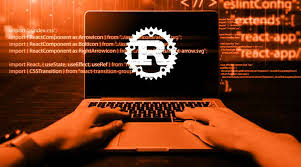Why Rust is the Future of Programming

Rust has taken the programming world by storm. With its focus on safety, performance, and modernity, Rust is quickly becoming the go-to language for developers tackling some of the most complex challenges in software development.
Why Rust?
Traditional programming languages like C++ have long dominated systems programming. However, they often come with pitfalls such as memory leaks, unsafe concurrency, and cumbersome debugging. Rust, designed to address these issues, offers a fresh approach with a focus on developer productivity and code safety.
Key Features of Rust
-
Memory Safety Without Garbage Collection
Rust’s unique ownership model ensures memory safety by default. This eliminates entire classes of bugs, such as null pointer dereferences and dangling pointers, while maintaining high performance. -
Fearless Concurrency
Writing concurrent and parallel code in Rust is safe and intuitive. Its strict compile-time checks ensure that data races are caught before your program ever runs. -
Zero-Cost Abstractions
Rust enables developers to write high-level, abstract code without sacrificing performance. You can write clean and modular programs without worrying about runtime overhead.
Who is Rust For?
Rust is versatile, making it an excellent choice for various developer audiences:
- System Programmers: Build operating systems, game engines, and embedded systems with ease.
- Web Developers: Leverage frameworks like Actix Web and Axum for building robust backend systems.
- Blockchain Developers: Rust powers several major blockchain platforms, including Polkadot and Solana.
Real-World Applications of Rust
Many leading tech companies and projects have adopted Rust for critical systems:
- Mozilla: Rust was created at Mozilla and is used in their Servo web engine.
- Dropbox: Utilizes Rust for high-performance storage systems.
- Microsoft: Incorporates Rust for secure, low-level code in Azure and Windows.
Why Learn Rust Now?
As the tech industry continues to prioritize safety, performance, and scalability, Rust’s importance is only set to grow. Learning Rust now positions you at the forefront of this programming revolution, opening opportunities in fields like web development, game design, and blockchain.
Conclusion
Rust is more than just another programming language—it’s a new way of thinking about safe and efficient software development. Whether you’re a beginner or an experienced developer, Rust offers tools that make programming enjoyable and rewarding. Join the Rustacean community today and start building the future!
Comments